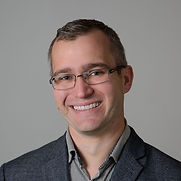
Projects
The Russia-Ukraine War and Global Trade Reallocations: Opportunities or Impairments for U.S. Agriculture?
Completed

Project Summary
The Russian invasion of Ukraine has created immense human suffering, but it is also damaging global trade. The World Trade Organization estimated that the global economic prospect has “darkened” considerably since the war started on February 24, 2022, expecting trade growth to fall from 4.7% to less than 3%. The Russia-Ukraine war also threatens global food security. Ukraine is a major agricultural exporter that exports most of its agricultural production via sea and the war limited this mode of transport considerably. This development causes repercussions for agricultural producers all around the globe, inducing a global reallocation of trade flows for core agricultural commodities, such as cereal grains, oilseeds, and fertilizer. The proposed research will shed light on the global trade reallocation effects of the Russia-Ukraine war, drawing on detailed trade data and theory-consistent empirical models to assess the trade destruction and diversion effects for agricultural commodities, paying particular attention to the trade consequences faced by U.S. agriculture. The analysis will provide critical insights for researchers and policymakers concerned about the effects of the Russia-Ukraine war on U.S. agricultural trade.
Objectives
Understand better the opportunities and challenges that U.S. agricultural exporters faced due to the Russia-Ukraine war.
Assess how trade restrictions related to the Russia-Ukraine war magnified some of the direct and indirect trade responses.
Funding Agency
Foreign Agricultural Service, United States Department of Agriculture, Cooperative Agreement
Project Members

Sandro Steinbach (PI)
North Dakota State University

Md Deluair Hossen
University of Tennessee

Armen Khederlarian
University of Connecticut

Andrew Muhammad
University of Tennessee